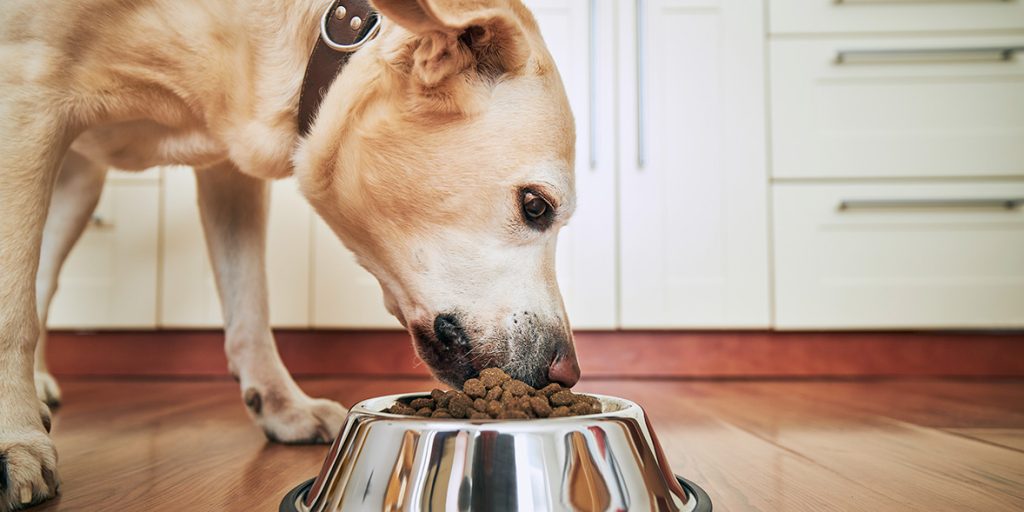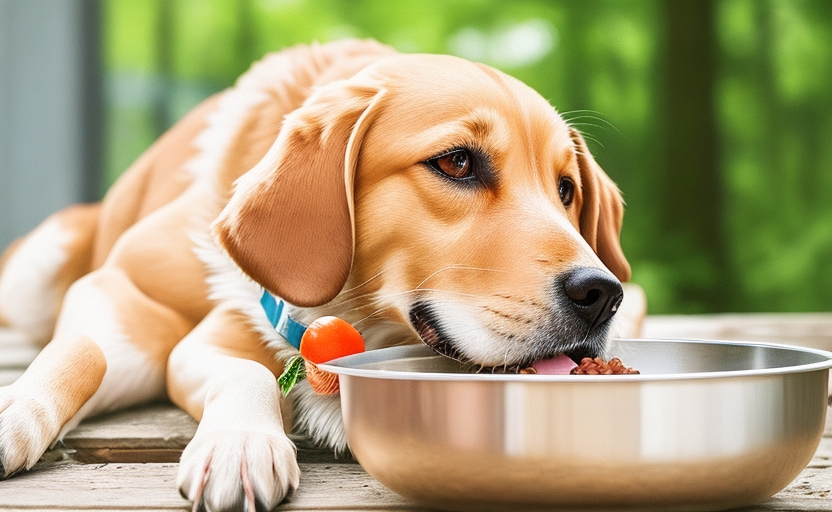How to Improve a Dog’s Diet Regarding our beloved furry friends, ensuring a healthy and balanced diet is essential for their overall well-being. Like humans, dogs require a proper diet to maintain optimal health and prevent various health issues. This article will explore practical ways to improve a dog’s diet, providing valuable insights and tips for dog owners to ensure their canine companions thrive.
Understanding the Importance of a Balanced Diet for Dogs
A balanced diet is crucial to a dog’s overall health and longevity. It provides the nutrients, vitamins, and minerals required for proper growth, strong immunity, healthy weight maintenance, and improved organ function. A well-balanced diet ensures your furry friend receives the optimal nutrition to thrive and stay active.
Identifying Nutritional Needs Based on Life Stage
Just like humans, the nutritional needs of dogs vary depending on their life stage. Puppies require a different set of nutrients compared to adult dogs or senior dogs. It’s essential to identify the specific nutritional requirements for your dog’s life stage and choose a diet that meets those needs.
1. Puppies
During the puppy stage, dogs require a diet that promotes healthy growth and development. This includes a higher intake of protein, healthy fats, and essential vitamins and minerals. Consult your veterinarian to determine your puppy’s best food options and feeding schedule.
2. Adult Dogs
Adult dogs have different nutritional needs compared to puppies. They require a balanced diet that maintains their energy levels, supports muscle and organ health, and prevents weight gain. Look for dog food formulas for adult dogs, considering their breed, size, and activity level.
3. Senior Dogs
As dogs age, their metabolism slows down, and they may require adjustments to their diet. Senior dogs often benefit from diets that support joint health, promote brain function, and manage weight. Consult with your veterinarian to determine the appropriate dietary changes for your senior dog.
Choosing High-Quality Dog Food

Selecting high-quality dog food is vital for improving your dog’s diet. Find reputable brands prioritizing quality ingredients and avoiding artificial additives, fillers, and by-products. Read the labels carefully, ensuring the food provides a complete and balanced nutrition profile for your dog’s needs.
Incorporating Fresh and Nutritious Ingredients
In addition to commercial dog food, incorporating fresh and nutritious ingredients can significantly enhance your dog’s diet. Add small portions of cooked lean meats, vegetables, and fruits to their meals. However, be cautious about foods toxic to dogs, such as chocolate, grapes, onions, and garlic. Always research which ingredients are safe and consult your veterinarian if you have any doubts.
Avoiding Harmful Foods and Ingredients
While adding fresh ingredients to your dog’s diet is essential, it’s equally important to be aware of foods that can be harmful to them. Certain human foods, such as chocolate, caffeine, alcohol, onions, and garlic, can be toxic to dogs and should be strictly avoided. Additionally, artificial sweeteners like xylitol can also be dangerous. Educate yourself about these foods and ensure your dog’s diet does not include any potentially harmful ingredients.
Monitoring Portion Sizes and Avoiding Overfeeding
Maintaining a healthy weight is crucial for your dog’s overall well-being. Overfeeding can lead to obesity and various health issues. Follow the recommended portion sizes mentioned on the dog food packaging or consult your veterinarian to determine the appropriate serving size for your dog’s breed, size, and activity level. Avoid giving excessive treats and snacks, which can contribute to weight gain.
Providing Sufficient Hydration
Proper hydration is as important as a nutritious diet for your dog’s health. Always ensure fresh and clean water is readily available for your furry friend. Monitor their water intake and refill their water bowl regularly throughout the day. If you notice any signs of dehydration, such as lethargy or dry gums, consult your veterinarian promptly.
Introducing Supplements, if Necessary
In some cases, certain supplements can be beneficial for improving a dog’s diet. However, it’s essential to consult with your veterinarian before introducing any supplements. They can guide you on which supplements, such as omega-3 fatty acids or joint supplements, may suit your dog’s needs.
Maintaining a Consistent Feeding Schedule
Establishing a consistent feeding schedule for your dog helps maintain their digestive health and prevents irregular eating habits. Feed your dog simultaneously each day, dividing their meals into appropriate portions. Avoid free-feeding, which can lead to overeating and disrupt their feeding routine.
Incorporating Regular Exercise

Alongside a healthy diet, regular exercise is vital for your dog’s overall well-being. Physical activity helps maintain a healthy weight, supports cardiovascular health, and stimulates mental stimulation. Engage your dog in daily walks, play sessions, or interactive activities that match their energy level and breed requirements.
Monitoring and Adjusting the Diet as Needed
Dogs’ dietary needs may change over time, depending on various factors such as age, activity level, and health conditions. Monitoring your dog’s weight, energy levels, coat condition, and overall health is crucial. If you notice any changes or concerns, consult your veterinarian to evaluate whether adjustments to your diet are necessary.
Seeking Professional Guidance from a Veterinarian or Nutritionist
Regarding your dog’s diet, seeking professional guidance is invaluable. Veterinarians and certified pet nutritionists can provide personalized recommendations based on your dog’s needs. They can offer advice on diet selection, portion control, and dietary supplements and address any specific concerns you may have.
Addressing Dietary Restrictions and Allergies

Just like humans, dogs can also have dietary restrictions and allergies. Some dogs may be intolerant or allergic to certain ingredients, such as grains or specific proteins. If you suspect your dog has food sensitivities or allergies, consult your veterinarian to identify the allergens and make necessary dietary adjustments.
Understanding the Benefits of Home-Cooked Meals
Preparing homemade meals for your dog can have several advantages. It allows you to have complete control over the ingredients and their quality. However, ensuring the meals are nutritionally balanced and meet your dog’s specific dietary requirements is essential. Please consult a veterinarian or a veterinary nutritionist to create flat homemade meal plans for your dog to ensure they receive all the necessary nutrients.
Conclusion:
How to Improve a Dog’s Diet Improving your dog’s diet is crucial to ensuring their overall health and well-being. You can provide your furry friend with a balanced and nutritious diet by understanding their nutritional needs, choosing high-quality dog food, incorporating fresh ingredients, avoiding harmful foods, and maintaining portion control. Remember to monitor their weight, hydration, and overall health, and adjust their diet as needed. Regular exercise and seeking professional guidance from a veterinarian or nutritionist can further enhance your dog’s diet and promote its overall vitality.
Can I feed my dog table scraps or leftovers from my meals?
Feeding dogs table scraps or leftovers is generally not recommended, as they may contain harmful ingredients or upset their digestive system. Stick to a balanced diet specifically formulated for dogs.
How often should I feed my dog?
The feeding frequency depends on your dog’s age, size, and activity level. Adult dogs are usually fed twice daily, while puppies may require three or more meals. Consult with your veterinarian for specific feeding guidelines.
How often should I feed my dog?
The feeding frequency depends on your dog’s age, size, and activity level. Adult dogs are usually fed twice daily, while puppies may require three or more meals. Consult with your veterinarian for specific feeding guidelines.
Are all human foods safe for dogs?
No, some human foods can be toxic to dogs. Foods like chocolate, onions, garlic, and grapes should be avoided. Always research the safety of certain foods before sharing them with your dog.
Should I give my dog dietary supplements?
Dietary supplements should only be given under the guidance of a veterinarian. They can assess your dog’s needs and recommend appropriate supplements if necessary.
Is it better to feed my dog dry or wet food?
Both dry and wet dog food can be suitable options, and it often depends on your dog’s preference and specific needs. Consult with your veterinarian to determine the best choice for your dog.

1 thought on “How to Improve a Dog’s Diet: A Comprehensive Guide”